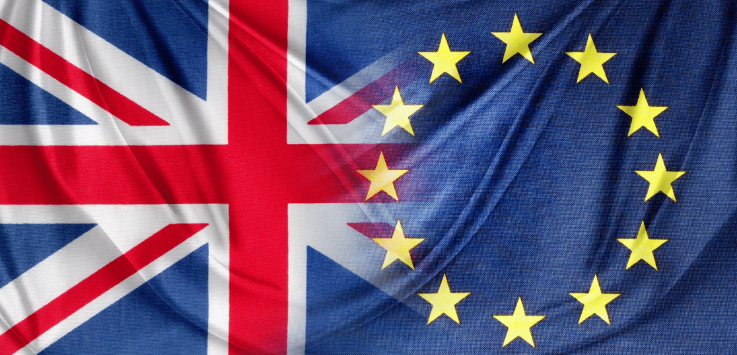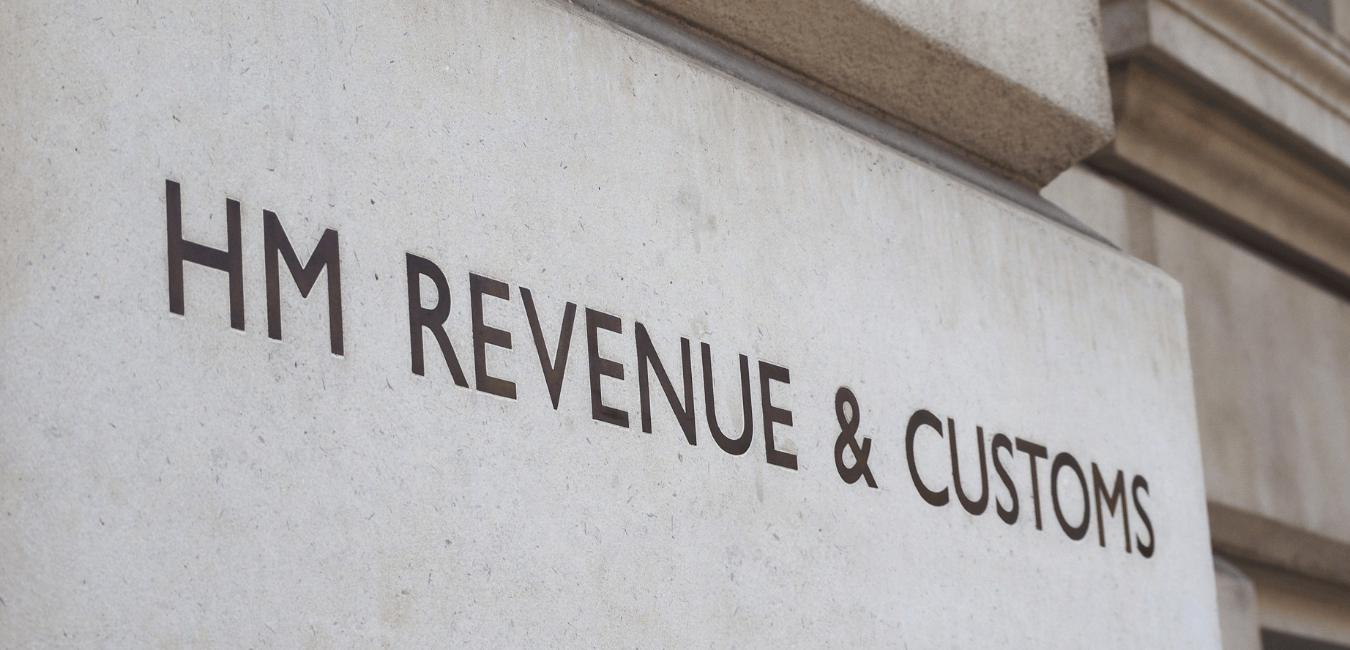How to export goods to Canada
The United Kingdom and Canada have a strong and long-standing business relationship. The United Kingdom ranked as Canada's third-largest single trading partner for goods and services. Approximately 3,700 Canadian businesses, the majority of which are small and medium-sized businesses, export items to the UK. Gold and energy goods are Canada's top exports to the United Kingdom, along with other metal and non-metallic resource items. The Department for Business and Trade states that cars are the UK's top export to Canada. Canada's fifth-largest cheese supplier is the United Kingdom.
The Canada-United Kingdom Trade Continuity Agreement, which is based on the Comprehensive Economic and Trade Agreement (CETA), came into effect on April 1, 2021, following the UK's departure from the European Union, often known as Brexit.
This how-to guide examines exporting goods to Canada, trade agreements with Canada, export controls, regulations, importer of record obligations, documentation, and compliance requirements. It also explores the advantages and considerations for businesses seeking to enter the Canadian market.
Guidance and Support for Exporting to Canada
Canada has a highly developed and competitive market with similar business practices to the UK. Its strong business and consumer base are sensitive to both price and quality. Bringing something new or different is often seen as the key to success. Opportunities exist for businesses in a multitude of sectors when exporting goods to Canada.
Canada Trade Agreements
At present, Canada maintains 15 free trade agreements with 51 nations. These agreements collectively cover 1.5 billion consumers globally.
United Kingdom
On April 1, 2021, the Canada-United Kingdom Trade Continuity Agreement (Canada-UK TCA) came into effect, maintaining preferential market access for enterprises in both Canada and the UK. The trade deal that the UK currently has with Canada is essentially a copy of what Canada already has with the EU. In March 2022, talks to draft a new trade deal between the UK and Canada began. In January 2024, the negotiations were put on hold because of differences over access to agricultural markets.
European Union
The second-biggest trading partner of Canada is the European Union (EU), which has one of the greatest economies in the world. Businesses in Canada have preferential access to fantastic growth prospects in the EU thanks to the Comprehensive Economic and Trade Agreement (CETA) between the two countries.
Mexico
On July 1, 2020, the North American Free Trade Agreement (NAFTA) was superseded by the Canada-United States-Mexico Agreement (CUSMA).
Export Licences and Restrictions
Many imported goods might need to be inspected, certified, or subject to other government departments' and agencies' requirements. On behalf of other government agencies, the Canada Border Services Agency (CBSA) is in charge of enforcing the legally mandated import regulations.
Canada has import restrictions on many different commodities. These products are included in the Export and Import Permits Act and the Import Control List (ICL).
In compliance with import permit regulations, Global Affairs Canada (GAC) grants import permits in response to import allocations or other import authorizations. GAC deducts permit quantities from the authorization balance.
The foreign seller exporting goods to Canada must assist the importer, upon request, with documentation related to customs clearance formalities.
Canada Trade Compliance
The importing community must adhere to all regulations controlling the accounting of commercial products imported into Canada to be considered trade-compliant. This entails accurately disclosing the origin and value of the commodities, classifying commercial goods under the proper tariff classification, and paying the relevant duties and taxes on imported goods. The Canada Border Services Agency (CBSA) conducts targeted verifications and publishes verification priorities to keep track of how trade-compliant commercial items are.
To make sure importers follow customs laws and regulations, the CBSA employs trade compliance verifications. Verifying trade data received from importers, assessing an importer's compliance with laws managed by the CBSA, compliance within industry sectors, and conducting evaluations of an importer's liabilities and entitlements are the primary goals of the agency's verification processes.
Shipping Documents
The seller exporting goods to Canada must provide the Canadian importer with properly completed customs documentation, such as:
- the Canada Customs Invoice (CCI) or a commercial invoice containing CCI data
- a Certificate of Origin specific to the Free Trade Agreement (FTA) or a Certificate of Origin Form A
- a bill of lading or an airway bill
To ascertain the time and location of the direct shipment to Canada, additional paperwork, such as a goods invoice, a confirmation of sale, or an ordinary commercial invoice, could be needed.
Certain products, such as food or health-related goods, may need permits or certificates to comply with regulations from other federal government agencies.
Country of Origin Requirements for Canada
The Canada Border Services Agency (CBSA) determines which items are eligible for a specific tariff treatment based on origin rules. The rules of origin specify the level of production that must take place in Canada or another nation for the commodities to be classified as "originating in" that nation and be eligible for a certain tariff treatment. This guarantees that tariff rates, if any, are limited to those nations that have signed a trade agreement with Canada.
To effectively apply the rules of origin, goods must be classified in accordance with the Harmonised Commodity Description and Coding System. Certain rules of origin are associated with each tariff treatment. According to the regulations, proof of origin is required in order to support claims for preferential tariff treatment. In some cases, an exporter's statement of origin or origin declaration may be required from the seller who is exporting goods to Canada.
Canada Import Duty
Several countries use CIF (cost, insurance, and freight) as the valuation of imported goods for the purposes of calculating import duty and taxes. An example of this is Canada. Duty and taxes apply to most items (above a basic level) that are imported into Canada.
The Canada Border Services Agency (CBSA) uses the product value expressed in Canadian dollars to calculate any potential duty owed. The sort of goods being imported and the country from which they were created or originated will determine the duty rates. Excise duty or excise tax on luxury items are examples of additional taxes that might be applicable based on the goods or their worth.
Canada Import Tax and Sales Tax
All imports into Canada are subject to a 5% import tax known as the Goods and Services Tax (GST). Additional sales tax may also be applicable, depending on the Canadian province of destination. The Canada Border Services Agency (CBSA) is responsible for collecting import taxes. The federal Goods and Services Tax (GST) and provincial sales taxes (PST) are the two primary forms of taxes levied on imported goods. The importer who is liable for paying duty is also required to pay the GST on the goods imported. GST is a value-added tax (VAT) and is imposed at every stage of the production and distribution process.
Registrants are entitled to claim input tax credits for the GST paid or payable on imported products if they import them for consumption, use, or supply during their commercial activities. It is not always the case that the individual who pays the tax is the one who is eligible to claim an input tax credit for GST owed on imported products in Canada. This illogical circumstance arises when the importer of record is a non-resident. It occurs because multiple parties may agree to bear responsibility for taxes, tariffs, and other customs-related obligations.
Who will be the Importer of Record into Canada?
Regulations in Canada
The Importer of Record (IOR) bears the responsibility for the accuracy and entirety of the import declaration, payment of all applicable taxes and duties into Canada, and adherence to any Participating Government Agency (PGA) regulations. When exporting goods to Canada, the foreign seller is responsible for providing documentation to enable the Importer of Record to complete customs clearance formalities.
Canadian Importer of Record
According to the Customs Act, the importer, owner, or their agent may designate themselves as the importer of record for a transaction. No policy paper from the Canada Border Services Agency (CBSA) exists that provides definitions for the terms "importer" and "owner."
Section 17 of the Customs Act makes clear the duty liability of the party claiming to be the importer of record. Regardless of who they may say is the genuine importer or owner, the importer of record in the commercial and courier streams is recognised on customs declarations by referencing its business number given by the Canada Revenue Agency (CRA).
When exporting products to Canada, the Incoterms® 2020 rules agreed upon within the contract will normally clarify who will be responsible for the customs entry as the U.S. importer of record.
Foreign Importer of Record
When exporting goods to Canada, the Canadian customer may require the products to be delivered on Delivered Duty Paid (DDP) Incoterms into Canada. In this case, the foreign exporter is required to act as a non-resident importer (NRI). The use of DDP Incoterms is frequently requested to make purchasing imported products simpler for Canadian businesses and consumers when buying products from an overseas supplier.
A company based outside of Canada that exports products to businesses or consumers inside the country and handles customs clearance and other import-related obligations is known as a Non-Resident Importer (NRI). Through this programme, the exporter can charge the consumer shipping and handling fees that cover all shipment, customs clearance, tariffs, and taxes in Canadian dollars.
Requirements
- The first step in becoming an NRI should be obtaining a business number (BN), which is required prior to importing into Canada. The BN provides the foreign exporter with one number that applies to four Revenue Agency (CRA) business accounts: corporate income tax, payroll deductions, GST/HST (Harmonised Sales Tax), and port/export.
- A non-resident importer must obtain an Importer Number (which is also known as an “RM” number). This RM number must be used on the customs clearance documentation.
- If the foreign exporter does not have a permanent establishment in Canada when applying for GST/HST registration, then a security deposit must be provided to the CRA. For the first 12 months following registration, the security deposit is equal to 50% of the expected net tax. The security amount for the following year is 50% of your actual net tax for the preceding 12 months.
Considerations
- An NRI is subject to Canada’s Customs Act and relevant laws that the Canada Border Services Agency oversees and enforces. Foreign exporters registered under the NRI should be aware of additional considerations when exporting under the programme, such as maintaining customs-related records.
- If a non-resident corporation conducts business in Canada, they will be required to file a T2 return with the Canada Revenue Agency (CRA). Even if the corporation claims that any realised profit or gains are free from Canadian tax because of the terms of a tax treaty, this obligation still stands.
- Non-residents that have a risk of creating a taxable nexus or sufficient connection to Canada are generally required to register for and collect GST/HST on taxable supplies of goods and services made in Canada.
Canadian Customs Agent
It is up to importers to decide whether to produce and submit their own paperwork for customs clearance. If importers would prefer not to deal directly with the Canada Border Services Agency (CBSA), they can choose an agent to handle business on their behalf. While importers can deal with the CBSA through an agency, they are ultimately in charge of accounting documentation, paying customs and taxes, and making any necessary modifications, such as reclassifying goods, determining the classification, and valuing them. Until the importer or the agent pays the duties, the importer is still responsible for all outstanding obligations.
Under the Customs Act, only a licenced customs broker is permitted to account for goods and pay duties on behalf of an importer or owner. However, in most situations, any fully authorised agent may transact business with the CBSA on behalf of customers.
When exporting goods to Canada, the foreign seller is responsible for providing documentation in conformity with Canadian customs regulations.
Export Consulting Services
Exporting goods to Canada can be challenging due to a rapidly evolving business environment with many risks, but it also offers enormous opportunities for those who navigate it correctly with the help of an export consultant. Making sense of complicated Canadian regulations can be time-consuming and very costly when businesses get it wrong. Our export consultancy can guide your business through every aspect of exporting products to Canada, making sure that your business is structured to maximise the benefits of trading with the Canadian export market.
We provide flexible and tailored professional export consulting services to reduce costs, optimise exports to Canada, and ensure compliance with Canadian customs and tax regulations.
International Trade Blog
Here you can read about our individual international trade projects that we have managed and see how our international trade resources have helped with the process of exporting products to Canada. Our international trade case studies detail the issues identified and the Canadian export market advice we provided.
Get in touch for guidance on exporting products to Canada.
Please complete this form for advice on the Canadian export market, and we will get back to you.




